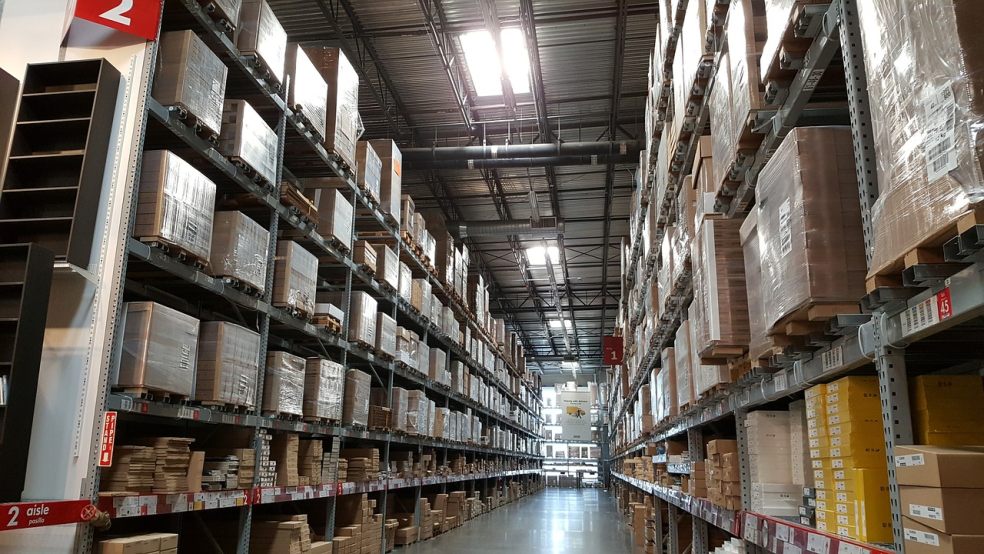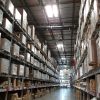
Building a Sustainable Supply Chain: Here's What You Can Do
Supply chains are necessary as we all rely on them throughout our everyday lives. They are important to the business world as they help move raw materials from one place to another, allowing them to start production. Eventually, this business will be able to use a supply chain to move these products to the shop floors. Without solid supply chains in place, basic necessities would fail to get delivered across the country to those who need them.
Now, more businesses are seeing a growing demand for sustainability, which is influencing their supply chains. Business owners are now wondering what they can do to positively impact the environment. Luckily, there are a few steps that all business leaders can follow to help them successfully build a more sustainable supply chain by implementing better supply chain management.
Analyse Your Supply Chain
To help you change your supply chain for the better, you will first need to break down your current system and analyse it to help you identify any sustainability issues that may exist. Some of these issues may be easier to identify than others. For example, the transportation of goods contributes to pollution. Previously, it has been reported that transport has become one of the most polluting sectors in the UK. However, there are ways that you can quickly improve your shipping process, such as reducing dead mileage. Dead mileage refers to you using transport ineffectively, such as sending half loaded trucks that could have been filled with more supplies or products.
Some elements that may not be as easy to identify are poor working conditions and the creation of hazardous chemicals from your production line. By taking the time to analyse and look into these areas, you can identify any issues and work quickly to overcome them, which will help you develop more sustainable solutions.
Linear Vs Circular Supply Chain
There are different types of supply chains out there, and it is vital that you put research into each one to identify a type that will help you achieve better sustainability. A linear supply chain is an approach that describes the linear path of raw materials to production and disposal. A circular supply chain differs as it incorporates recycling back into the manufacturing process. The raw materials are used and then recycled back into production and, as a result, there is reduced waste.
Adopting a circular supply chain will help to reduce your business's carbon footprint. Instead of sending discarded products to landfill, you can manufacture them into new ones. As well as increasing the sustainability of your business, it can also save your company a lot of money in the long run. You no longer have to put effort into regularly sourcing new materials.
Lower Fuel Consumption
Increased fuel consumption continues to pose a threat to our environment. With the demand for goods at an all-time high, it can be difficult for businesses to lower their fuel consumption. However, it is not impossible. You should take time to educate your drivers on fuel-efficient habits. Some examples include avoiding harsh braking and high speeds, which you can learn more about online.
It is important to note that lowering your fuel consumption doesn't stop there. Fleet tracking systems can also improve the efficiency of all vehicles in your fleet. They allow you to monitor your drivers' behaviours to help you identify any risks. They can also alert your drivers of any accidents on their journey and help them recalculate new routes, so fuel is no longer wasted sitting in traffic jams. There are plenty of benefits that these systems can offer, and they can certainly increase the sustainability of your supply chain.
Take Up a Supply Chain Management Online Course
Online learning continues to grow in popularity. Now, business professionals can expand their knowledge and enhance their skill set within specific areas of business operations such as supply chain management. Take a look at this sustainable supply chain management course from the University of Cambridge Institute for Sustainability Management (CISL). It covers various topics on the technological and environmental aspects of supply chain management through detailed, weekly modules that can help educate you and your staff. Your team can walk away from the course with valuable knowledge and relevant skills that will help them implement positive changes in your organisation and existing supply chain.
There are many logistics courses available online. Your team can complete it in just a few weeks, and the skills they will gain can help them to become more informed leaders and forward thinkers. It equips business professionals with the tools they need to impact the building of efficient supply chains within a rapidly evolving global context while addressing important issues such as rising inequality.
Communicate With Your Suppliers
Not all businesses have complete control over their supply chain. Some organisations will liaise with suppliers and other third-party companies. In these instances, where the control is not in your hands,make sustainability a common topic of discussion and identify whether your values align.
Building strong supplier relationships is crucial to help you achieve a sustainable supply chain that you are proud of. If you struggle with this, use the internet for inspiration. There are plenty of top tips out there that can help you build strong supplier relationships. Think about rewarding positive attitudes towards sustainability, which will encourage this behaviour from your suppliers moving forward.
Increase Environmental Awareness
If you want to achieve sustainability in your supply chain, you will need to understand the importance of environmental awareness. Ask yourself an important question – how does your business impact the environment? For example, your factory may emit harmful gases, or you may use packaging that is harmful to the environment. Once you understand your business's impact, you can then take the necessary action to change your business operations for the better.
Start by taking a look at some eco-friendly business tips online to inspire you. It may help you identify environmental issues that you didn't know existed within your business operations. Learning what your business can do to protect the environment can help you build a sustainable supply chain while encouraging others to do the same. All business leaders must take time to understand how their business negatively impacts the environment to identify a need for change moving forward.
Improve Working Conditions
Unfortunately, thousands of employees worldwide still experience poor working conditions. As previously discussed in this article, poor working conditions can be a more challenging risk to identify. In the UK alone, it has been reported that more than a third of workers struggle in low-quality jobs. A shockingly high figure. It is crucial that you give your employees a voice. Ask them if they are happy with their working conditions and if there are any areas that they feel need improvement.
Too many people across the globe continue to work in poor working conditions, which certainly impacts a business’s desire to achieve a sustainable supply chain. You should actively nurture a good company culture and invest in the physical environment. Reassess the working conditions regularly and investigate areas that need improvement. A sustainable business should prioritise the health and well-being of its employees.
Summary
Building a sustainable supply chain is certainly possible with the help of these top tips above. Whether you need to register your business professionals onto a sustainable supply chain management online short course, or you need to lower your fuel consumption, there is no denying that sustainable supply chains are the future. Not only will they offer a lot of positive effects on the environment, but they can also enhance your business operations and help all business leaders work towards greater efficiencies and profitability in the future.




















